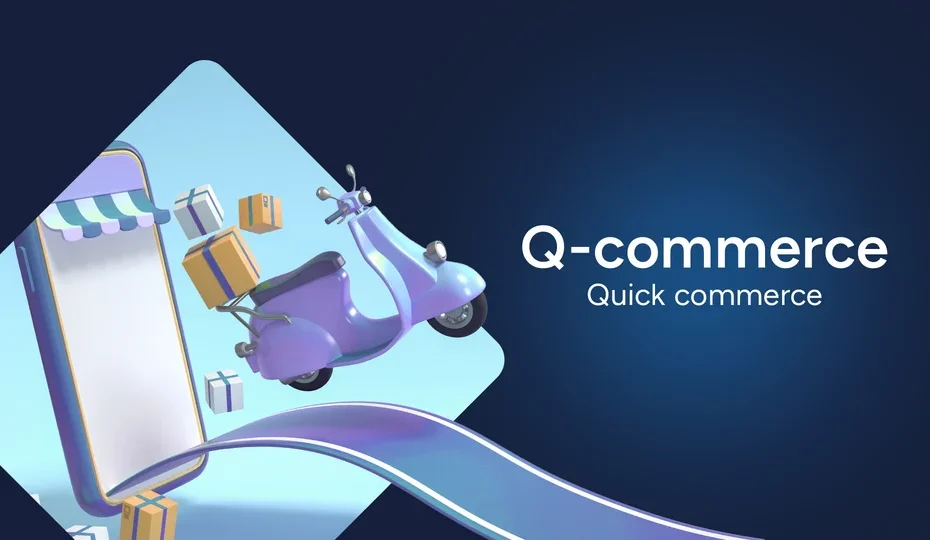In today’s fast-paced digital landscape, startups are increasingly leveraging the benefits of quick commerce to establish themselves as prominent brands. Quick commerce, also known as rapid delivery or instant needs, has revolutionized the way businesses operate, allowing them to deliver products to customers in a matter of minutes or hours.
Table of Contents
The Rise of Quick Commerce
The rise of quick commerce can be attributed to several factors, including:
Changing Consumer Behavior
- Instant Gratification: With the advancement of technology, consumers are now accustomed to getting what they want, when they want it. This has led to a shift in consumer behavior, with many expecting rapid delivery services from businesses.
- Increased Expectations: The rise of e-commerce and same-day delivery has set a new standard for consumer expectations. Consumers now expect fast and convenient delivery options, and businesses that fail to meet these expectations risk losing customers.
Advancements in Technology
- Logistics and Supply Chain Management: Advances in logistics and supply chain management have made it possible for businesses to deliver products quickly and efficiently. This has enabled startups to offer rapid delivery services, even in areas with limited infrastructure.
- Mobile Technology: The widespread adoption of mobile technology has made it easier for consumers to order products online and track their delivery in real-time. This has increased consumer expectations and driven the demand for quick commerce.
Increased Competition
- E-commerce Saturation: The e-commerce market has become increasingly saturated, with many businesses offering similar products and services. Quick commerce has emerged as a way for startups to differentiate themselves and gain a competitive advantage.
- New Business Models: The rise of quick commerce has led to the emergence of new business models, such as dark stores and micro-fulfillment centers. These models have enabled startups to offer rapid delivery services and compete with established players.
Startups Leveraging Quick Commerce Benefits
Many startups are leveraging the benefits of quick commerce to establish themselves as prominent brands. Here are a few examples:
Food Delivery Startups
- Zomato: Zomato, a food delivery startup, has leveraged quick commerce benefits to expand its customer base and increase sales. By offering rapid delivery services, Zomato has been able to differentiate itself from its competitors and establish a competitive advantage.
- Swiggy: Swiggy, another food delivery startup, has also leveraged quick commerce benefits to succeed in the market. By offering rapid delivery services, Swiggy has been able to increase customer satisfaction and loyalty.
E-commerce Startups
- Nykaa: Nykaa, an e-commerce startup, has leveraged quick commerce benefits to offer rapid delivery services to its customers. By partnering with logistics companies, Nykaa has been able to deliver products quickly and efficiently, resulting in higher customer satisfaction rates.
- FirstCry: FirstCry, an e-commerce startup, has also leveraged quick commerce benefits to offer rapid delivery services to its customers. By offering same-day delivery, FirstCry has been able to increase customer satisfaction and loyalty.
Other Startups
- Dunzo: Dunzo, a hyperlocal delivery startup, has leveraged quick commerce benefits to offer rapid delivery services to its customers. By partnering with local merchants, Dunzo has been able to deliver products quickly and efficiently, resulting in higher customer satisfaction rates.
- Grofers: Grofers, a grocery delivery startup, has also leveraged quick commerce benefits to offer rapid delivery services to its customers. By offering same-day delivery, Grofers has been able to increase customer satisfaction and loyalty.
Benefits of Quick Commerce
Quick commerce offers several benefits to startups, including:
- Increased Customer Satisfaction: Quick commerce allows businesses to deliver products quickly, resulting in higher customer satisfaction rates.
- Competitive Advantage: By offering rapid delivery services, startups can differentiate themselves from their competitors and establish a competitive advantage.
- Increased Sales: Quick commerce can lead to increased sales, as customers are more likely to make repeat purchases from businesses that offer rapid delivery services.
Conclusion
quick commerce has revolutionized the way businesses operate, offering several benefits to startups. By leveraging the benefits of quick commerce, startups can establish themselves as prominent brands, increase customer satisfaction, and gain a competitive advantage. As the demand for rapid delivery services continues to grow, it is likely that we will see more startups leveraging quick commerce benefits to succeed in the market.
FAQ’s
What is Quick Commerce?
Quick commerce refers to the rapid delivery of products and services to customers, often within a short time frame (e.g., same-day or next-day delivery).
Why are Startups Leveraging Quick Commerce?
Startups are leveraging quick commerce to differentiate themselves from competitors, increase customer satisfaction, and gain a competitive advantage in the market.
What Types of Startups are Leveraging Quick Commerce?
Various types of startups are leveraging quick commerce, including food delivery startups (e.g., Zomato, Swiggy), e-commerce startups (e.g., Nykaa, FirstCry), and hyperlocal delivery startups (e.g., Dunzo, Grofers).
How are Startups Benefiting from Quick Commerce?
Startups are benefiting from quick commerce by increasing customer satisfaction, gaining a competitive advantage, and driving business growth.
What is the Future of Quick Commerce?
The future of quick commerce looks promising, with more startups expected to leverage rapid delivery services to succeed in the market. As consumer expectations continue to rise, quick commerce is likely to become a key differentiator for businesses
